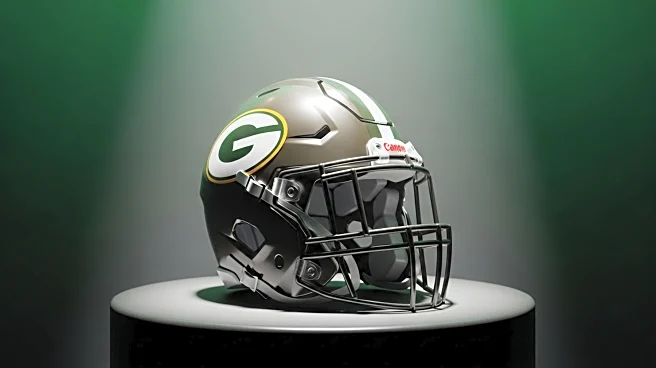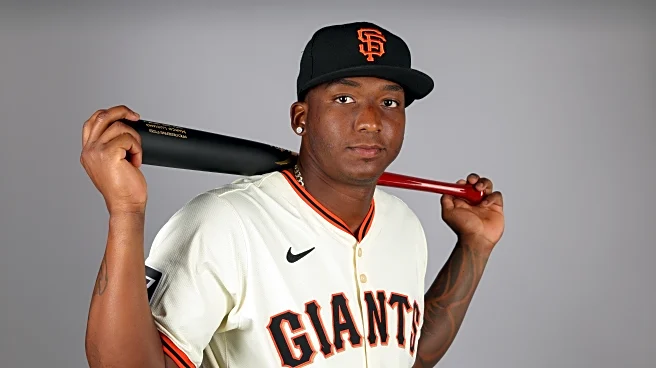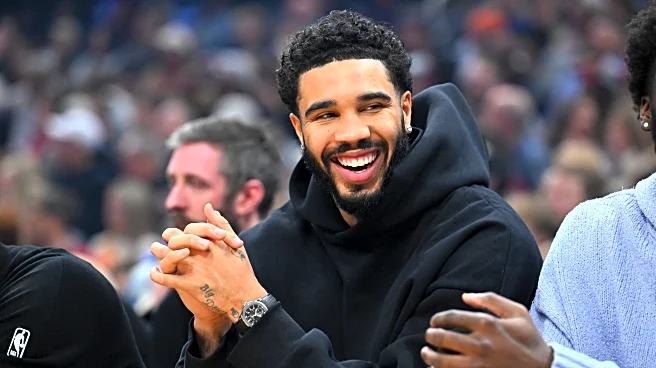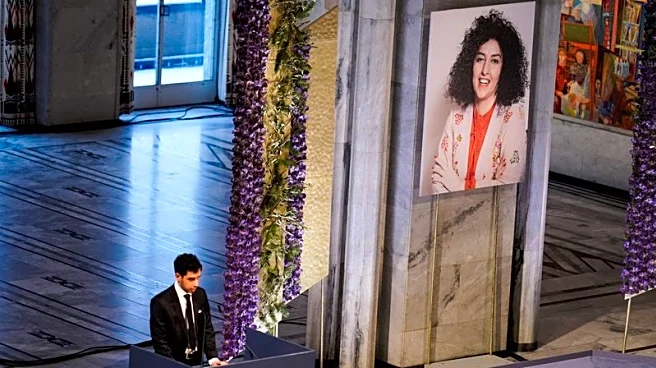What's Happening?
Micah Parsons, formerly of the Dallas Cowboys, has been traded to the Green Bay Packers in a significant NFL move. The trade includes Pro Bowl star Kenny Clark and two first-round picks in 2026 and 2027. Parsons, an All-Pro defensive end, has signed a four-year, $188 million extension with the Packers, making him the highest-paid non-quarterback in NFL history. The trade follows months of contract negotiations and a formal trade request from Parsons. NBA stars, including Draymond Green and Julius Randle, have reacted to the trade, expressing disappointment with the Cowboys' decision. Parsons has expressed gratitude to Dallas fans and teammates, despite the trade ending his tenure with the Cowboys.
Why It's Important?
The trade of Micah Parsons to the Green Bay Packers is a major shift in the NFL landscape, affecting team dynamics and player contracts. Parsons' new contract sets a precedent for non-quarterback salaries, potentially influencing future negotiations for defensive players. The Cowboys' decision to trade Parsons has sparked debate among fans and analysts, questioning the team's strategy for the upcoming season. The Packers gain a defensive powerhouse, which could enhance their competitiveness in the league. The trade also impacts the Cowboys' roster and their approach to building a championship team, raising questions about their long-term plans.
What's Next?
The Green Bay Packers will integrate Micah Parsons into their defensive lineup, aiming to capitalize on his skills for the upcoming season. The Cowboys will need to adjust their strategy without Parsons, focusing on their new acquisitions and draft picks. The two teams are set to face each other in Week 4, providing an opportunity for Parsons to play against his former team. Fans and analysts will closely watch how both teams perform post-trade, assessing the impact on their season prospects. The trade may also influence future player negotiations and team strategies across the NFL.
Beyond the Headlines
The trade of Micah Parsons highlights the evolving nature of player contracts and team strategies in the NFL. It underscores the financial dynamics of the league, where player value can lead to record-breaking contracts. The move also reflects the competitive pressures teams face in maintaining a strong roster while managing salary cap constraints. The reactions from NBA stars indicate the broader cultural impact of such trades, as sports figures across leagues engage with major NFL developments. This trade could signal a shift in how teams approach player retention and contract negotiations, influencing the league's economic landscape.










